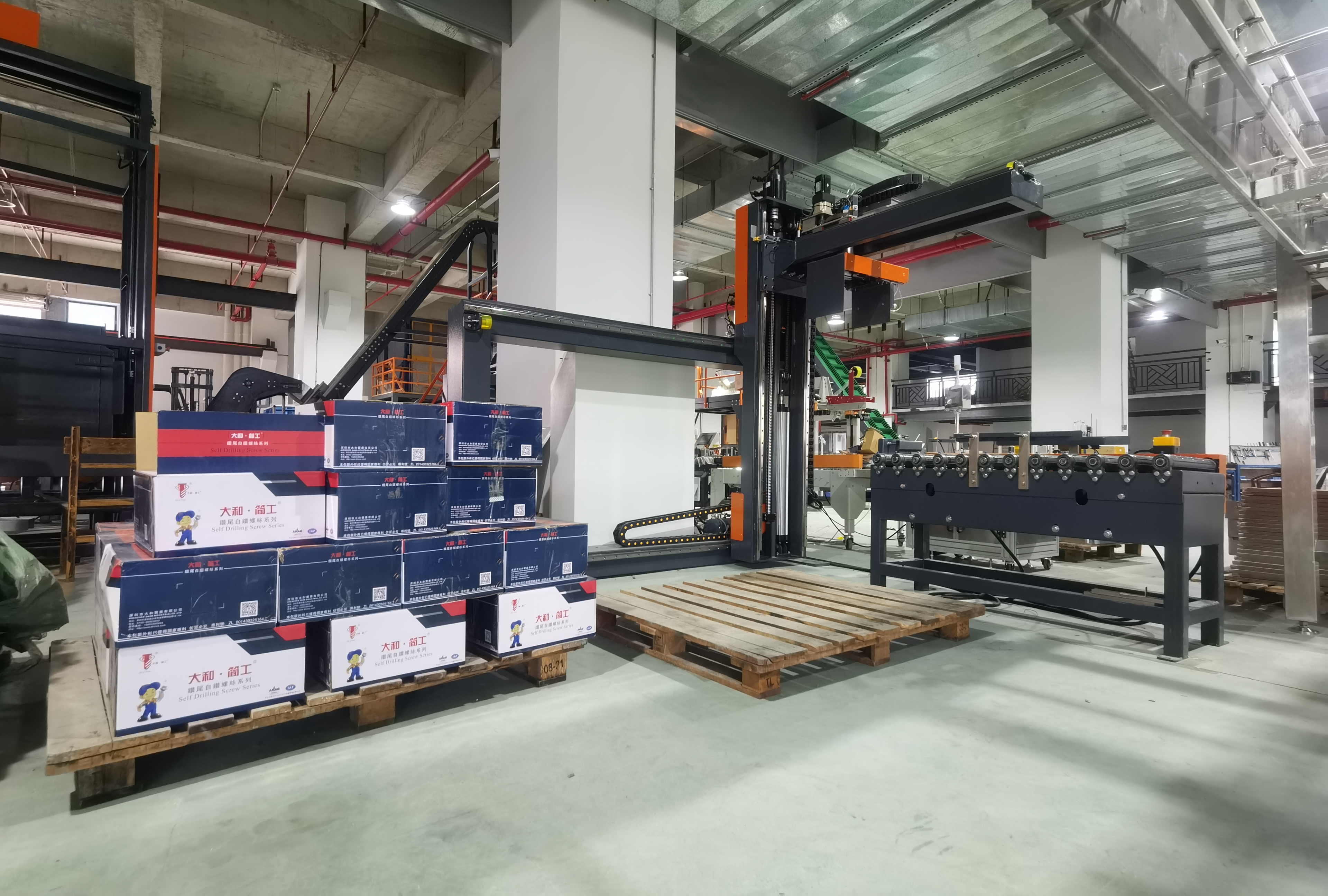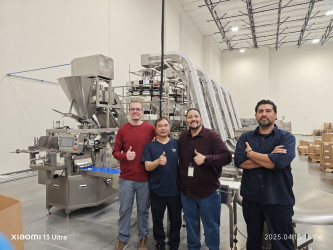The Importance of Palletizers in the Packaging Line: Efficiency, Safety, and Beyond
Introduction
In the fast-paced world of modern manufacturing and logistics, efficiency is the key to success. Companies across various industries are constantly seeking ways to streamline their processes, reduce costs, and enhance productivity. One crucial element in achieving these goals is the use of palletizers in the packaging line. Palletizers are automated machines designed to arrange and stack products on pallets, and their significance in the production and distribution process cannot be overstated. In this article, we will delve into the importance of palletizers, exploring their role in improving efficiency, ensuring product safety, and contributing to sustainability efforts.

1. Increased Production Output
One of the primary advantages of incorporating palletizers into the packaging line is the significant increase in production output. Manual palletizing is a labor-intensive and time-consuming task, prone to errors and inconsistencies. Palletizers, on the other hand, are capable of handling large volumes of products with remarkable speed and precision. According to a report by the Packaging Machinery Manufacturers Institute (PMMI), palletizing machines can stack products up to five times faster than manual labor, allowing companies to meet rising consumer demands efficiently.
2. Reduced Downtime
Palletizers operate around the clock, minimizing downtime caused by fatigue, shift changes, or breaks. This continuous operation ensures a steady flow of products through the packaging line, ultimately leading to improved production efficiency. With fewer interruptions, companies can optimize their resources, reduce operational costs, and maintain consistent delivery schedules.
3. Improved Quality Control
Quality control is paramount in packaging operations, and palletizers play a crucial role in maintaining product integrity. These machines can be programmed to arrange products with precision, minimizing the risk of damage during handling and transportation. In contrast, manual palletizing is more susceptible to errors that can result in product defects or customer complaints. According to a study by the Packaging World magazine, automated palletizing systems have been shown to reduce product damage by up to 70%, which translates to significant cost savings for manufacturers.
Ensuring Product Safety1. Worker Safety
Worker safety is a top priority for any responsible company. Manual palletizing can be physically demanding and exposes workers to the risk of injuries such as strains, sprains, and back problems. In contrast, palletizers eliminate the need for manual lifting and repetitive motions, reducing the risk of workplace injuries. This not only safeguards the well-being of employees but also lowers workers' compensation claims and associated costs.
2. Consistent Load Stability
Proper load stability is essential to prevent products from shifting or falling during transportation. Palletizers ensure consistent load patterns, reducing the likelihood of accidents caused by unstable loads. This is particularly critical in industries where products are heavy or fragile, such as the food and beverage industry or construction materials sector. By maintaining load stability, palletizers contribute to overall transportation safety and mitigate the risk of accidents on the road.
Sustainability Benefits1. Reduced Material Waste
Sustainability is a growing concern for businesses and consumers alike. Palletizers can significantly contribute to sustainability efforts by reducing material waste. These machines optimize palletization patterns, minimizing the number of pallets and packaging materials required. Additionally, they can be programmed to use the least amount of stretch wrap or strapping while ensuring load stability. According to the Sustainable Packaging Coalition, companies that have adopted automated palletizing systems have reported a reduction in packaging material waste by up to 30%.
2. Energy Efficiency
Modern palletizers are designed to be energy-efficient. They incorporate advanced technologies such as regenerative braking and power-saving modes to reduce energy consumption during operation. This not only lowers operational costs but also aligns with corporate sustainability goals by reducing the carbon footprint associated with production and distribution processes.
3. Increased Recycling Opportunities
Efficient palletization made possible by palletizers facilitates easier recycling. When products are stacked neatly and securely on pallets, they are less likely to get damaged during transit, increasing the likelihood that damaged or expired goods can be returned, refurbished, or recycled. This circular approach to product management reduces waste and supports a more sustainable supply chain.
Case Studies and Industry ExamplesTo illustrate the real-world impact of palletizers in the packaging line, let's look at a few industry examples:
1. Food and Beverage Industry
In the food and beverage industry, where products often have short shelf lives, palletizers are essential for ensuring quick and efficient packaging. Companies like Nestlé have reported significant improvements in production efficiency and product safety after implementing palletizing systems. By automating their packaging lines, they reduced labor costs, minimized product damage, and improved traceability and quality control.
2. Pharmaceutical Industry
In the pharmaceutical industry, precision and safety are paramount. Palletizers have been instrumental in ensuring the accurate stacking and handling of delicate pharmaceutical products. Companies like Pfizer have seen a reduction in product recalls and a boost in overall production efficiency, thanks to the implementation of advanced palletizing systems.
3. E-commerce and Distribution Centers
In the e-commerce era, speed and efficiency are vital for meeting customer expectations. Distribution centers and e-commerce giants like Amazon rely heavily on palletizers to handle the high volume of products moving through their warehouses. These systems enable them to optimize space utilization, reduce labor costs, and maintain a rapid order fulfillment process.
Conclusion
In the dynamic landscape of modern manufacturing and distribution, the role of palletizers in the packaging line cannot be overstated. They are the backbone of efficient and cost-effective production processes, offering a multitude of benefits, including increased production output, enhanced worker safety, and significant contributions to sustainability efforts. Through case studies and industry examples, we have seen how palletizers have transformed various sectors, from food and pharmaceuticals to e-commerce and distribution.
As businesses continue to prioritize efficiency, safety, and sustainability, the adoption of palletizers is expected to grow. These machines are not merely tools for stacking products on pallets; they are key drivers of success in today's competitive market. Embracing the importance of palletizers in the packaging line is not just a smart business move—it's a necessity for staying ahead in the ever-evolving world of manufacturing and logistics.



